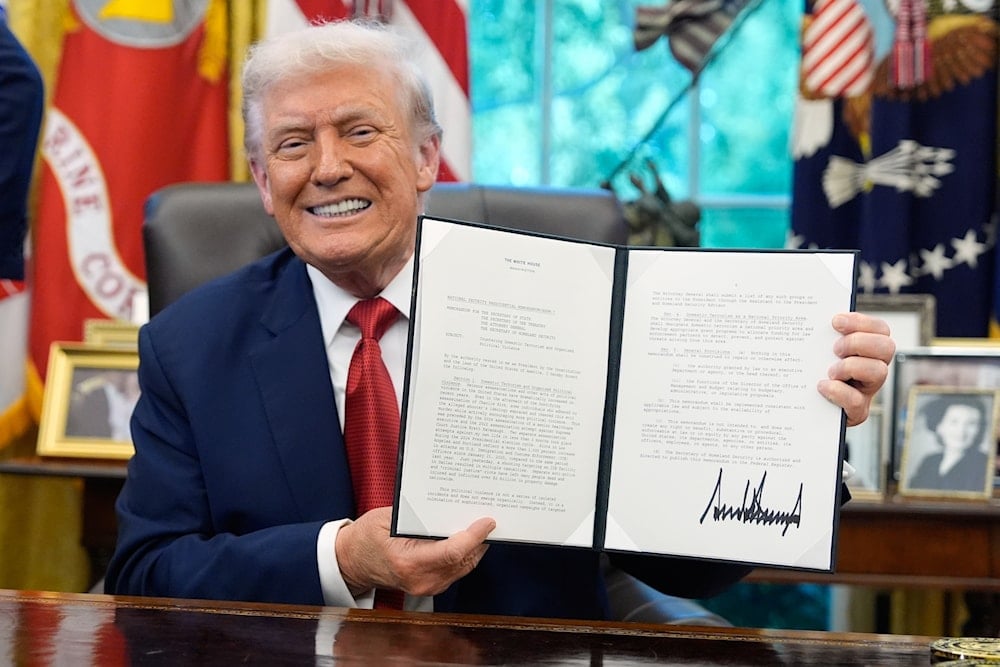Trump slaps pharma, big trucks, furniture with new tariffs
The US president has announced a series of tariffs, including significant tariffs on brand-name pharmaceuticals, heavy-duty trucks, and furniture.
-

US President Donald Trump holds a signed presidential memorandum on countering domestic terrorism and organized political violence, in the Oval Office at the White House, Thursday, Sept. 25, 2025, in Washington (AP)
US President Trump announced the implementation of numerous new tariffs, including a substantial one targeting pharmaceutical companies that are not building manufacturing plants within the United States, on Thursday.
“Starting October 1st, 2025, we will be imposing a 100% Tariff on any branded or patented Pharmaceutical Product, unless a Company IS BUILDING their Pharmaceutical Manufacturing Plant in America,” the US president announced on his TruthSocial platform.
Additional tariffs introduced on Thursday cover a range of items, including large trucks and home goods, which go into effect on October 1.
Tariffs enter the kitchens
Trump stated that heavy trucks imported from outside the US would face a 25% tariff, explaining that the measure was intended to protect domestic heavy truck manufacturers from what he described as unfair external competition.
The production of heavy-duty trucks for the US market is dependent on plants in Mexico, a reliance exemplified by commercial truck manufacturers such as Germany’s Daimler Truck North America and its assembly of Freightliner-brand trucks.
Freightliner, which holds a commanding 40% share of the North American heavy-duty truck market, is not alone in its manufacturing strategy; Germany's Traton Group also produces its International-brand heavy-duty trucks in Mexico.
The new tariffs announced by Trump include a 50% levy on products, such as kitchen cabinets and bathroom vanities, and a 30% levy on upholstered furniture.
Trump justified the tariffs by stating that they were a necessary response to the flooding of the US market with these products by other countries, a practice he characterized as unfair but which required a protective response for reasons of national security.

 2 Min Read
2 Min Read










